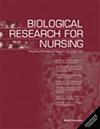Predictive Value of Increased Perioperative Heart Rate for All-Cause Mortality After Cardiac Surgery: A Systematic Review and Meta-Analysis
IF 2.1
4区 医学
Q2 NURSING
引用次数: 0
Abstract
Background: Accumulated studies have revealed that heart rates are associated with all-cause mortality in cardiac surgery patients, but the results remain controversial. This meta-analysis aimed to evaluate the predictive value of increased perioperative heart rate for all-cause mortality after cardiac surgery. Methods: We searched PubMed, Embase, Web of Science, and Cumulative Index of Nursing and Allied Health Literature (CINAHL) databases for studies from inception to October 11, 2021. Two researchers independently screened the studies. Titles, authors, publication years, and hazard ratios were extracted. We used a random-effects model to combine the HRs and 95% confidence intervals. Several subgroup analyses were conducted. Statistical significance was set at p < .05. Results: Eleven studies were included in the meta-analysis of 33,849 patients and 3166 (9.4%) deaths. The HR of higher perioperative heart rates was 2.09 (95% CI 1.53–2.86, p < .001, I2 = 81%). The HR with a 10-bpm increase in preoperative heart rate was 1.19 (95% CI 1.11–1.26, p < .001, I2 = 51%). Subgroup analysis showed patients with higher preoperative heart rates had an HR of 1.88 (95% CI 1.51–2.34, p < .001, I2 = 0%), and patients with a higher postoperative heart rate had an HR of 2.29 (95% CI 1.28– 4.09, p < .0001, I2 = 91%) compared to patients with lower postoperative heart rates. Conclusion: Increased perioperative heart rate is associated with all-cause mortality in patients undergoing cardiac surgery.围手术期心率升高对心脏手术后全因死亡率的预测价值:系统评价和荟萃分析
背景:积累的研究表明,心率与心脏手术患者的全因死亡率有关,但结果仍存在争议。本荟萃分析旨在评估围手术期心率升高对心脏手术后全因死亡率的预测价值。方法:我们检索PubMed、Embase、Web of Science和CINAHL数据库,检索从成立到2021年10月11日的研究。两名研究人员独立筛选了这些研究。提取题目、作者、出版年份和风险比。我们使用随机效应模型将hr和95%置信区间结合起来。进行了几个亚组分析。差异有统计学意义,p < 0.05。结果:11项研究纳入了33,849例患者和3166例(9.4%)死亡的荟萃分析。较高围手术期心率的HR为2.09 (95% CI 1.53 ~ 2.86, p < 0.001, I2 = 81%)。术前心率增加10 bpm的HR为1.19 (95% CI 1.11 ~ 1.26, p < 0.001, I2 = 51%)。亚组分析显示,术前心率较高的患者与术后心率较低的患者相比,HR为1.88 (95% CI 1.51-2.34, p < 0.001, I2 = 0%),术后心率较高的患者的HR为2.29 (95% CI 1.28 - 4.09, p < 0.0001, I2 = 91%)。结论:心脏手术患者围手术期心率升高与全因死亡率相关。
本文章由计算机程序翻译,如有差异,请以英文原文为准。
求助全文
约1分钟内获得全文
求助全文
来源期刊
CiteScore
5.10
自引率
4.00%
发文量
58
审稿时长
>12 weeks
期刊介绍:
Biological Research For Nursing (BRN) is a peer-reviewed quarterly journal that helps nurse researchers, educators, and practitioners integrate information from many basic disciplines; biology, physiology, chemistry, health policy, business, engineering, education, communication and the social sciences into nursing research, theory and clinical practice. This journal is a member of the Committee on Publication Ethics (COPE)

 求助内容:
求助内容: 应助结果提醒方式:
应助结果提醒方式:


